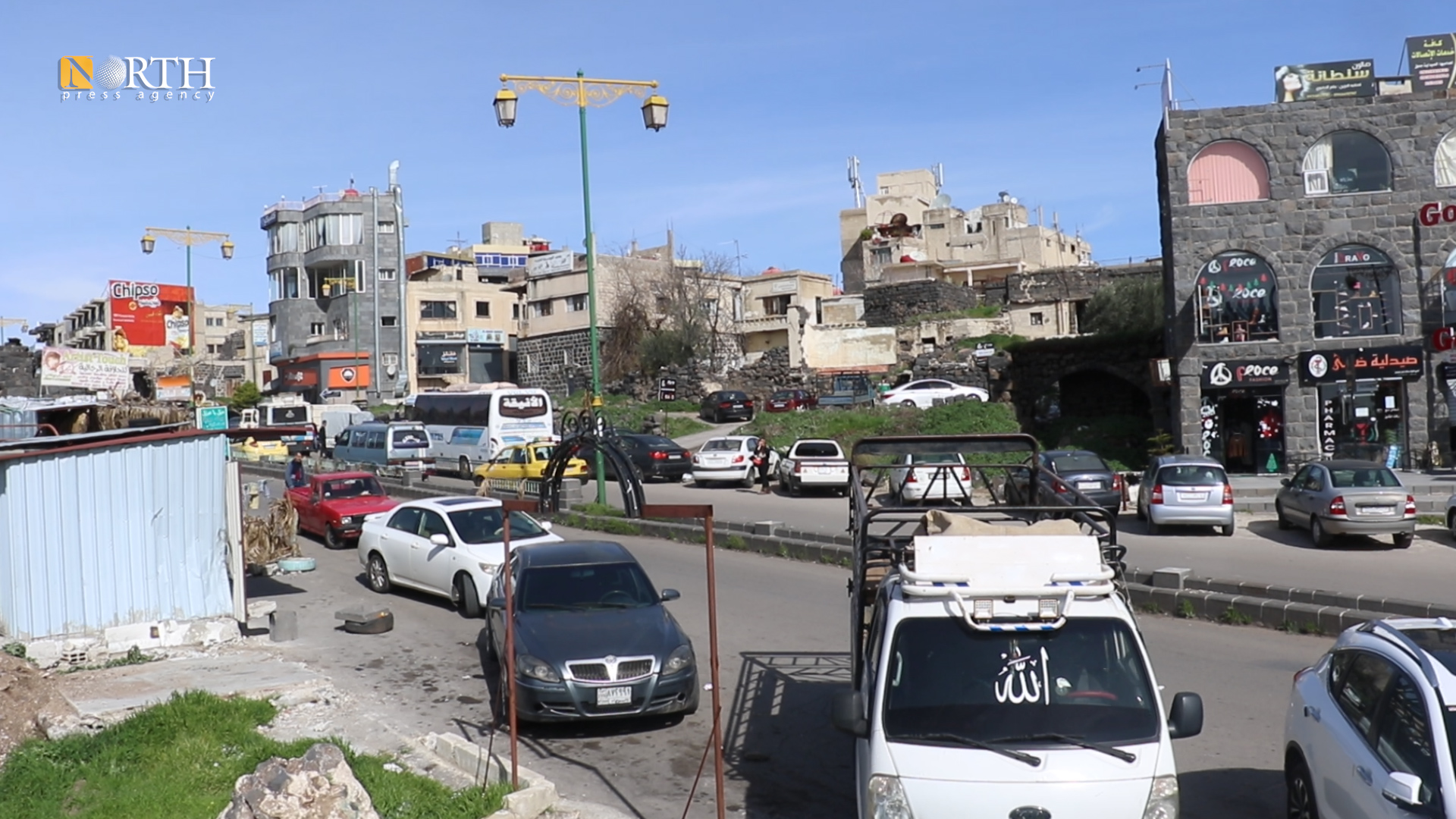Suwayda intellectuals, politicians call for administrative decentralization in Syria
SUWAYDA, Syria (North Press) – On Saturday, intellectuals and politicians from Suwayda, south Syria, called for the implementation of administrative decentralization in the country, given that the negatives of centralization in governance have brought Syria to its current situation.
There is no doubt that the economy is related to the social situation and the circumstances of each country, Suwayda-based intellectual and politician Mohaib Salha said.
“As long as Syria is a pluralistic country in terms of ethnicity, religion, and politics, it must be pluralistic in economic terms as well,” he told North Press.
Decentralization is necessary
He pointed out that pluralism and diversity in Syria requires careful consideration regarding administrative decentralization instead of centralization.
During the past six decades, and since the independence of Syria until now, centralization has failed to create development “economically, socially, politically, and culturally,” according to Salha.
“The negativities of centralization in governance in the country” is what worsened the situation in Syria, according to the politician.
He explained, “If Syrians were satisfied that their political and economic system would be decentralized, then it would have taken into account the state of pluralism in the Syrian society and then set economic and political identities based on citizenship.”
And this would be fulfilled through “mutual recognition to the rights of all Syrian communities coexisting on one land inside Syria,” according to Salha.
“If Syrians had sought a decentralized system of government in managing the country’s affairs since independence, they would not have experienced the agonies of wars and infighting, in contrast to what is happening now in terms of fragmentation caused by the tyranny of the center,” he added.
The government of 1920 took into account the diversity in the Syrian society and called for a federal and decentralized Syria, Salha added.
“There is a break up with this project that Syrians launched after the independence from the Ottoman occupation,” he added.
Other institutions came to stress the decentralization principle in the governance politically and economically, he pointed out.
He believes that economic freedom with social justice, which is guaranteed by the state and based on a decentralized, democratic, secular, pluralistic system, “is one of the basic and important solutions to shape the future Syrian state.”
Implementing decentralization
Centralization in Syria, whether economic, political, or social, necessitates the implementation of administrative decentralization on the political and security levels in order to get rid of the centralized government.
“Exploiting natural resources by centralization government…and distributing them unfairly to residents makes administrative centralization an inevitable necessity,” human rights and political activist from Suwayda Youssef Saliqa said.
“If Syrians agree on the implementation of administrative decentralization in governance, it should be implemented in narrow areas that includes minorities,” Saliqa added.
He pointed out that it should form as regions, as “the Syrian south region, Syrian northeast region, the Syrian coastal region, the Syrian central region, and northwest region, in order not to be employed in an abhorrent, sectarian, or ethnic manner.”
Administrative decentralization is the fruit of the modern state in improving the economic condition, according to Jamal al-Shofi, an academic and political writer residing in Suwayda.
“If the conditions of administrative decentralization impose conditions to improve the economy and fulfill justice at the level of administration and democracy at the same time, then it should be based on the constituents of administrative decentralization,” he added.
Related to identity
Decentralization is organically linked to Syrian identity, and it should “smooth effects of the centralization of the totalitarian regime, the Islamist alternatives or military tutelage,” he added in his speech to North Press.
“Decentralization is a free card for the Syrian future to fulfill serious democratic conditions away from the escalating central conflicts, and helps to develop the democratic experience, which is still developing,” he added.
Al-Shofi stressed that if a solution for the Syrian issue is found or not at the center level, “all Syrian regions should think seriously about their economic and social constituents, provided that they are linked to the Syrian identity.”
The most important conditions of decentralization are “economic integration at the level of the general environment and implementation of free local elections at the level of executive and security departments, and keeping an independent judiciary.”
Administrative decentralization is an advanced model in fulfilling improvement inside several countries all over the world topped by developed countries.
“Decentralization in Syria should be implemented within the current objective conditions, which can be reached politically in the next social contract for Syria,” Bayan Tarabeh, a filmmaker, theater director and political activist from Suwayda, told North Press.
“Will the coming Syrian state’s sovereign decision be independent? Or will it be subjected to multiple international tutelages?” he wondered.
He also wondered, “Will Syrians have space to create their own political and economic sphere that returns natural life to Syria?”
He believes that “administrative decentralization is one of the important future solutions regarding the shape of governance in Syria, but without foreign tutelages and interferences.”

